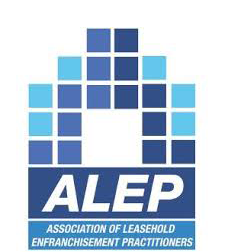It’s the 25th of May 2024 and my head is spinning.
Like a well known blonde mopped, scruffy politician, I sometimes like to write articles before and against a proposition. It helps me decide which way to campaign and eventually get Brexit (or in this case, Leasehold reform) done.
However, unlike Mr B de Pfeffel Johnson, the architect here of getting Leasehold Reform done isn’t sticking around to try and persuade the public of it’s virtues. On the same day the Leasehold and Freehold Reform Act 2024 was given Royal Assent, the Secretary of State for Communities, Housing & Local Government Michael Gove announced he’s leaving Parliament. Perhaps he has a good party to go to.
One of the longest pieces of legislation in recent years was a buggars muddle at best, a collection of competing objectives from lots of MPs submitting amendments, with the sound of pressure groups ringing in their ears. It was like the conscious thought of the Vicar of Dibley’s Jim Trott, with repeated ‘Yes, Yes, Yes, Yes, No’ moments. As an outsider looking in though, it was pleasing to see democracy taking place, the hope being that out of some organised chaos may come useful legislation.
Then enter, stage right, the Right Honourable (no, honestly) Rishi Sunak.
The unexpected calling of a General Election on July 4th, sent my profession, Chartered Surveyors specialising in leasehold reform, into meltdown. Rumours became rife. All of the hard work of the Jim Trott’s in Parliament, the Civil service and others would be lost with the Bill falling away. It would be left to a (likely) incoming Labour Government to pick it up. With hundreds of new MPs, perhaps with a few independent thoughts between them to submit more amendments. Would the Bill have the priority it has had. Or would it be kicked quietly into the long grass under the auspicious of a new Government having other priorities.
But no, what happened was arguably even more chaotic. The Conservatives and Labour decided that they have enough in common (funny, that coincidence) to rush the legislation through in the two days between the election being announced and Parliament breaking up for it’s holidays (erm, I mean campaigning).
The ‘wash up’ process, before Parliament broke up, only allowed for the Bill to go through with various amendments dropped as there was no time to debate them further. It’s like that time I said to the kids, it was time to go home after a day out but didn’t listen to their thoughts beforehand. By the time we got off a gridlocked M25 with a four year old telling me 5,000 times he needed the toilet, I regretted that decision.
It remains to be seen what the unintended consequences of rushing the job are here. If I rush the washing up, I often find something needs to be cleaned again. Here, I suspect the same will happen.
I can’t rate what they’ve done as they’ve not rated it themselves
Amongst the first revisits to the legislation, will be secondary legislation to set the deferment and capitalisation rates. For none leasehold reform nerds, these relate to amounts payable for delaying or preventing the leasehold interest returning to the landlord (normally a freeholder). Also the amount to compensate the landlord for losing the right to receive the ground rent.
Effectively, the legislation has been passed with the words ‘ENTER FIGURE HERE’ in highlighted yellow in two places, to remind you to enter it before submitting. Like an essay a student may submit, the government ‘MUST DO BETTER’ and ‘SEE ME’.
So, upon realising that the ‘ENTER FIGURE HERE’ was to be decided by secondary legislation, what happened? Well the Secretary of State responsible announced a few hours before the legislation passed that he was off. Like Reggie Perrin walking off into the wilderness, he is leaving a (likely) Labour government to pick up the pieces in the next Parliament.
At the moment, we don’t know whether these rates will reduce or increase the cost of lease extensions or leaseholders acquiring their freehold.
When? For the love of God, just tell us when! Please
It’s not just the secondary legislation for these that’s needed though. There’s also the Commencement Orders which decides when the legislation becomes operational law.
So, when will the new Parliament write the Commencement Orders to put the changes into place? Well if I knew that, I’d be straight down the bookies (common betting options of course) and ready to make my millions. Perhaps it will be weeks after the election. Perhaps it will be years. There have already been suggestions that the new law may become operative in 2025, 2026 and 2028 (clearly 7 isn’t a lucky number). It’s very conceivable that some parts will become operational law before others as a result of different commencement Orders.
It’s like the legislation is a brand new car, with a mechanic standing next to it with the final spark plugs, waiting for someone to tell him (or her) to fit them. Only, once they’re fitted, it may be found out that the car backfires.
So……thanks Govey Govey Govey. Errr…great job I guess. I’ll now wait for our clients to start asking questions, assuming the law is already operational. Most of our clients are not leasehold reform nerds so they may not realise the legalities of what is still to come here. My team and I will be prepared with blank expressions and furrowed brows as many of our answers will be ‘it depends’.
Perhaps there are similarities with politicians as well. They don’t answer questions on purpose. We’ll struggle to answer questions because of the politicians purpose.
Are Marriages ending? (abolition of Marriage Value)
See what I did there? No? Only the fellow leasehold reform nerds then? Ok I guess.
The big ticket win for leaseholders in the new legislation is what is often mistakenly referred to as the abolition of Marriage Value. It’s not that it’s being abolished though. It’s more that in the divorce, one party is getting all of the value and the other is walking away with nothing. Like sleeping on the sofa whilst your ex gets the house. At least you’ve got your dignity I guess.
Under the current (not new) legislation, where a lease is precisely 80 years or under, the leaseholder extending pays 50% of any uplift in value from a short lease to a long lease. This increase is called Marriage Value, with the principle being that it should be shared. Under the new law, the leaseholder extending keeps all of this, with no payment for it to the landlord (normally a freeholder).
This often forms the largest part of the lease extension premium so it’s potentially a significant saving for leaseholders.
The same principle applies when it comes to leaseholders clubbing together to buy a freehold (Collective Enfranchisement).
Guess what though? That’s right! I don’t know when it’ll become law. The Commencement Order will determine that.
This is also the area of the Act that I suspect may be most likely to be subject to expensively paid Lawyers mounting human rights challenges. It is a significant transfer of wealth from one set of people to another, with no compensation payable. If the legal challenges are successful with the law then repealed, the Treasury may be on the hook for paying compensation to landlords who have lost out because enfranchisements have completed under the new law. Perhaps it would be sensible for Government to make this change a little later to at least mitigate the cost of the bill they may face at a later date.
That said, it relies on Government thinking ahead and being sensible. I guess it could happen.
99(0) problems but the length ain’t one
The new law provides that Statutory lease extensions will be for 990 years, rather than the current 90. Sounds great doesn’t it? Only, it’s not.
As any Leasehold reform nerd will tell you, in valuation terms the difference between a 90 year extension and a 990 one is the square root of the integrity of most politicians – very little! It’s a gimmick. It looks good but in reality, it’s all fur and no Knickers.
Also, under the current system, the parties to a lease extension may voluntarily agree to any term that they collectively see fit. For example, they could go straight to 999 years if they wish.
Rights of first refusal – Section 5 notices for freeholders looking to sell
Will freeholders looking to sell please form an orderly queue. Whilst you’re at it, please remember the Right of First Refusal from Part 1 of the Landlord and Tenant Act 1987. It requires you to serve formal notices on any leaseholders, offering to sell the freehold to them before you do so to someone else.
Where there are a number of leases which have dipped under the 80 year mark, I suspect there’ll be a number of freeholders looking to sell now before the new law comes in, in order to cut their losses.
Where all leases are above 80 years, it’s anyones guess right now whether freeholds will fall or increase in value. It largely depends on those ‘ENTER FIGURE HERE’ rates that Parliament will need to work out. Both what they are and when they do become operative law.
With a lack of certainty, freeholders may choose to sell now.
For any that do, remember your friendly experts over at Websters Surveyors as you’ll need a valuation.
Development hope value and roof top developments
In freehold valuations, the law hasn’t affected these. Those involved with enfranchisement claims still need to consider any development value or even hope development value where there is no planning permission for development.
This is something we know really well. We’ve not long ago been involved with a Tribunal reference that reached all the way to the High Court. The case regarding Odessa Court in East London concerned the value of air space rights with hope value for a roof top development. The judgment received our expert witness advice very well.
What about houses and the Leasehold Reform Act 1967, Section 9(1)
The legislation hasn’t removed the affect of Section 9(1) of the ’67 Act. This remains the basis for owners of leasehold houses to buy their freeholds.
If this is something you’re considering, then if the house is somewhere within or close to the M25, we can probably help. Get in touch.
So, let’s circle back
This is perhaps a little degrading. Sorry about that. For me to tarnish Parliament with the brush of often pointless management speak, they have to be managing something. In reality of course, they’re not managing anything. It’s like they’ve lit to fuse on the bomb and run off screaming la la la la on their way.
It’s easy to blame this on the Conservative party. After all, they’re the ones in Government at the time the mess was created. However, the other main parties agreed to pushing the legislation process through incredibly quickly with seemingly insufficient thought.
We now know something will happen. But there are important parts of it that we don’t know what they will look like. We also don’t know when it will happen.
So, we don’t know exactly what or when. Thanks politicians.
I don’t hold one party to blame though. I hold them all in equal contempt. In rushing the washing up, they’ve left the dishes dirty and then then run off.
We’re stuck with these dishes now though. Time will tell how well they get cleaned.
Thanks for reading
Dan Knowles FRICS
Director, Chartered Surveyor and failed journalist
danknowles@websterssurveyors.co.uk



